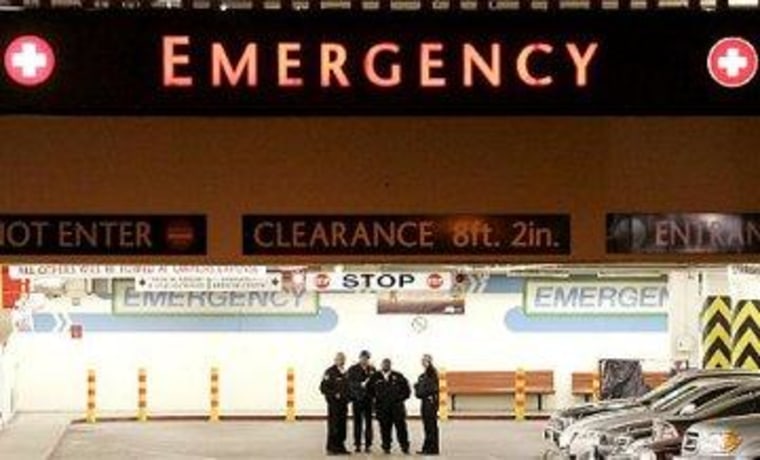Gov. Nathan Deal has often called on Congress to reconsider the Affordable Care Act. But on Monday evening, he pushed his former Washington colleagues to revisit a separate health care law that fewer politicians openly critique. The Emergency Medical Treatment and Labor Act is a 1986 law that requires hospitals to provide emergency health care treatment to anyone who needs it, regardless of citizenship or their ability to pay. It's provided life-saving care to countless people, but it's also strained hospital resources and turned emergency rooms into the first stop, instead of a last resort, for some. "If they really want to get serious about lowering the cost of health care in this country, [federal policymakers] would revisit another federal statute that has been there for a long time," Deal told a crowd of dozens at a University of Georgia political science alumni gathering.
Georgia's Deal: Tighten ER access
Georgia's Republican governor has an idea: improve hospital financing by making it easier to deny care to the uninsured. No, seriously.

Georgia Gov. Nathan Deal (R) has a problem: rural hospitals keep closing, overwhelmed by financial troubles they can't solve on their own. The obvious solution -- accepting Medicaid expansion under the Affordable Care Act -- is the one thing Deal refuses to even consider.
There is no great mystery here as to why the rural hospitals can't keep their doors open. These facilities have routinely covered low-income Georgians who don't have insurance, leading to facilities that can't pay their bills. Medicaid expansion would "help rural hospitals by turning many of their uninsured patients into paying patients," but the governor and GOP state policymakers won't budge.
But don't worry, Deal is ready to think outside the box.
Let this one roll around in your mind for a moment.
Uninsured Georgians in rural parts of the state have shown up for medical care at emergency rooms that can't turn them away. The hospitals provide care, as required by law, but the financial strain ultimately proves to be too great a burden for some facilities.
Deal's solution isn't to extend coverage to struggling families, thereby creating paying health care consumers for the hospitals; Deal's solution is to make it easier for the hospitals to deny care to the struggling families.
In his remarks this week, the Georgia Republican went on to say, "I think we should be able in this passage of time to figure out ways to deal with those situations but not have the excessive costs associated with unnecessary visits to the emergency room."
Well, if you expand access to insurance and guarantee easy access to preventive care, unnecessary visits to the emergency room would go down. Too bad Deal opposes expanded access to insurance and guaranteeing easy access to preventive care.
To be sure, I should emphasize that as a matter of hospital financing, Deal's argument is not without merit -- if medical facilities were able to simply deny care to the uninsured, those hospitals would definitely save lots of money.
But on the other hand, people would die from treatable ailments, paying with their life because they had the nerve to be poor.
Let's also note that prominent Republicans have spent the last few years arguing that the uninsured rate in the United States -- even before "Obamacare" -- is actually 0%. Why? Because Americans can always seek medical attention at the emergency room.
It's a truly outrageous argument on its own, but for Georgia's Nathan Deal, it's also apparently a solution that's outlived its usefulness.
UPDATE: Related video: